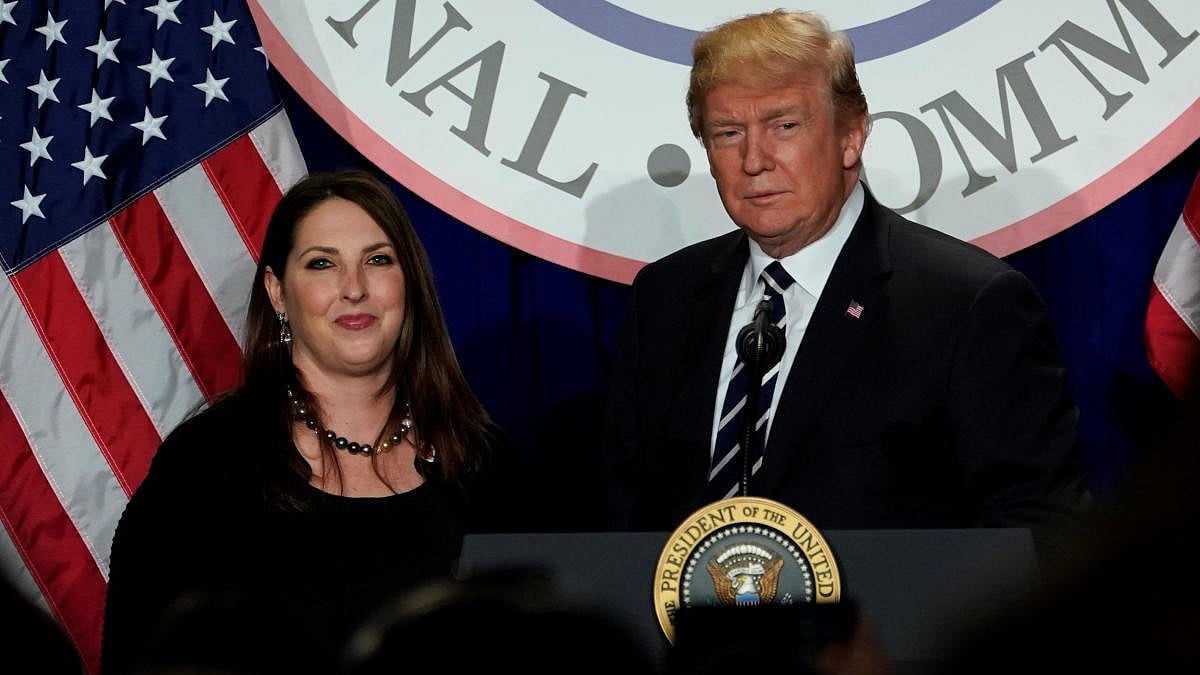Republican Party chairwoman Ronna McDaniel announced her resignation from her position, citing a desire to honor the tradition of change within the Republican National Committee (RNC) following the emergence of the party’s likely 2024 presidential nominee, Donald Trump. McDaniel’s departure comes amid increasing pressure from Trump to implement changes within the RNC as he gears up for a potential rematch with President Joe Biden in the upcoming election.

Trump’s Influence and Future Leadership
Former President Trump’s endorsement of North Carolina Republican Party Chair Michael Whatley as the next RNC chair, along with his daughter-in-law Lara Trump as co-chair, underscores his efforts to exert control over the organization as he solidifies his position as the frontrunner for the 2024 presidential nomination. With McDaniel’s departure, the stage is set for a new leadership team to navigate the complexities of a fractured party landscape, facing the challenge of unifying Republicans ahead of the pivotal 2024 election.
McDaniel’s Legacy and Trump’s Influence
McDaniel, formerly known as Ronna Romney McDaniel, played a significant role in Trump’s 2016 victory by helping secure crucial battleground states such as Michigan. Her close ties to Trump, evident in his endorsement of her leadership, marked a departure from her familial connection to former Republican presidential nominee Mitt Romney, who famously denounced Trump as a “phony, a fraud” during the 2016 campaign. Trump’s influence over McDaniel, including reportedly requesting her to drop her middle name, underscores the intricate dynamics within the Republican Party as it navigates the evolving landscape of American politics.
Challenges Ahead for the RNC
The incoming chair of the RNC will inherit a party grappling with internal divisions and the lingering influence of Trump’s brand of politics. With just nine months remaining until the 2024 election, the new leadership faces the daunting task of rallying Republicans behind a cohesive strategy while simultaneously appealing to a diverse base of voters. Additionally, navigating the delicate balance between Trump loyalists and more traditional Republicans will be crucial in shaping the party’s direction in the coming years.

The Future of the Republican Party
McDaniel’s departure marks a pivotal moment for the Republican Party as it seeks to redefine its identity and chart a path forward in a post-Trump era. With Trump’s continued influence evident in his endorsements and calls for party reform, the GOP must reconcile competing factions and articulate a vision that resonates with voters across the ideological spectrum. As the party prepares for the challenges and opportunities ahead, the selection of new leadership will play a critical role in shaping its trajectory and determining its ability to regain control of the White House in future elections.